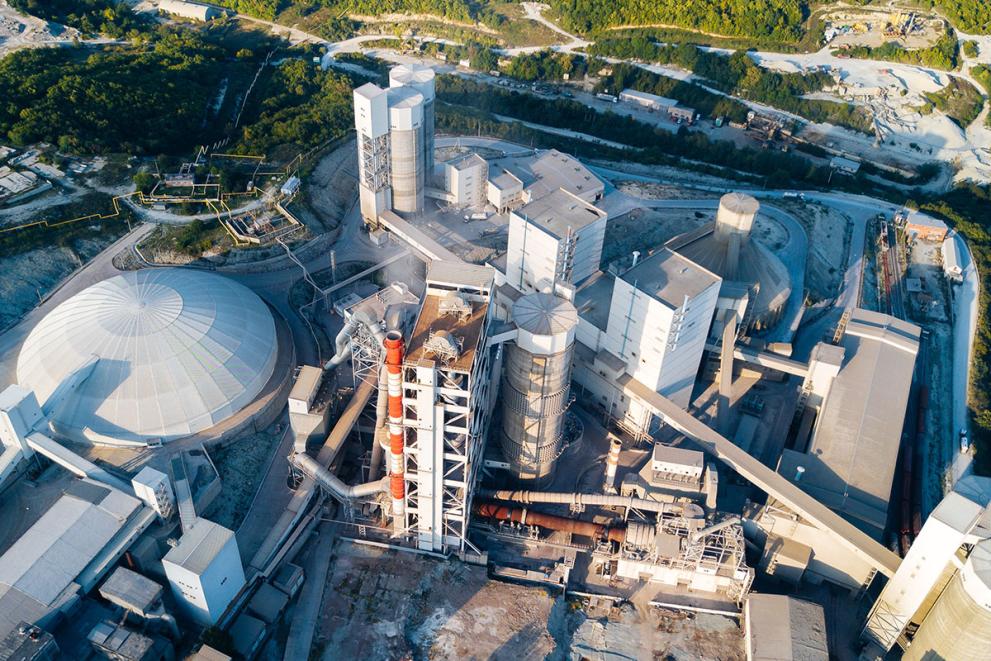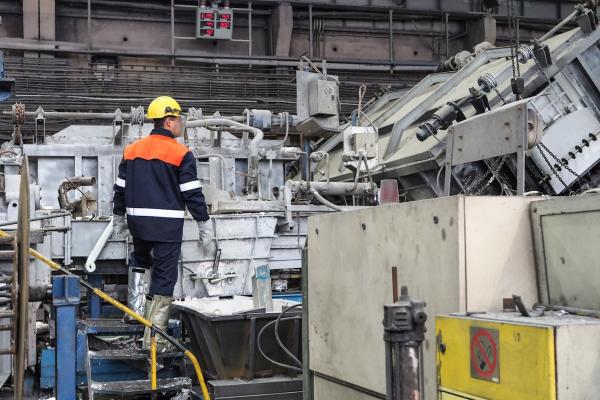
The Commission’s Joint Research Centre (JRC) is launching in Seville (Spain) INCITE, the European Innovation Centre for Industrial Transformation and Emissions. Key representatives of industry and the financial sector, experts, innovators, Commission’s senior officials and policymakers are meeting today to kick-start INCITE’s activities and discuss its priorities.
Watch the livestreamed inauguration
INCITE will assess the maturity of innovative technologies linked to decarbonisation, resource efficiency, circular economy and depollution, looking at both environmental and economic aspects. By doing so, INCITE aims to help EU industry meet zero pollution objectives while boosting its competitiveness.
INCITE will cover all the industrial sectors under the Industrial Emissions Directive, with an initial focus on energy-intensive industries, such as steel, cement and chemicals production.
Accelerating the take-up of breakthrough technologies for industrial transformation
EU industry needs to keep providing the commodities for citizens and the materials, technologies and infrastructure needed for rolling out cleaner energy solutions, while also reducing its environmental impact.
INCITE’s experts will scan breakthrough green technologies with a strong potential to lower the environmental impact of industrial activities. INCITE will assess the technology-readiness level of these technologies and their performance improvement potential against environmental objectives and cost effectiveness.
Techniques considered ready for use will be incorporated in the Sevilla Process, the mechanism that has supported public authorities in granting industrial operating permits in the EU for the last 25 years.
The Sevilla Process has a solid track record in reducing pollutants: emissions to air have decreased by 40%-75%1 in the last 15 years for example. The creation of INCITE, addressing not only pollution but also decarbonisation, circular economy and resource efficiency, is a strategic innovation in the revised Industrial Emissions Directive.
Providing accessible and independent technical assessments
Experts from INCITE will collect information on innovative industrial techniques from key stakeholders and set up an online information platform that will be openly accessible to e.g. industry, finance institutions, technology providers, permitting authorities and research and technology organisations for submitting information on innovative techniques.
INCITE will publish its findings in JRC technical reports and curate the information in such a way that it will:
- ease the administrative burden for Member States related to permitting of installations;
- help direct national and/or EU funding towards the most promising technologies;
- facilitate the verification process carried out by public or private investors during the industrial transition.
INCITE will also provide a forum for the industrial transformation community to exchange ideas and best practices and to promote a collaborative culture by organising sectoral workshops.
Industry can strongly benefit from access to transparent and reliable information. Small businesses, in particular, face challenges in obtaining a clear understanding of transformative technologies relevant to their industries. Data and forward-looking information are also useful for large EU industries to drive the green transition.
Assessing environmental performance in all its dimensions
To support the green transition, accessible information on the environmental impacts brought about by new technologies is key.
INCITE’s experts will transparently assess innovative techniques to check whether they are ready for use at an industrial scale, cost-effective, energy and resource efficient. They will also consider whether they provide significant environmental benefits, looking at the environmental performance of demonstration plants equipped with new innovative techniques.
The information will be sourced, assessed and checked in a dialogue with industry, innovators, research organisations technology providers, public authorities and environmental NGOs.
Guiding investment decisions
The technical assessments provided by INCITE can help inform investment decisions in innovative technologies needed to advance Europe’s transition towards a cleaner, carbon neutral, more circular and competitive economy by 2050.
Industry’s challenges: the examples of iron, steel and cement
Projected demand for iron and steel is expected to grow in the coming years due to economic growth, urbanisation, infrastructure investments and the increasing use of steel products in emerging industries, such as renewable energy and electric vehicles.
Globally, as in the EU, iron and steel is mostly produced using coal-fired blast furnaces, leading to substantial greenhouse gas emissions. A number of new production techniques are being scaled up, such as hydrogen-based production, and have the potential to be a game-changer in the decarbonisation process. The first iron production plant to run on hydrogen in Sweden is planned for 20262.
Another example is the cement sector, which is currently responsible for 7-8% of annual CO2 emissions worldwide, with demand forecast to increase in the coming years. The need to develop new production techniques will be central to achieving a net-zero future for the cement sector. These are likely to include electrification of lower heat precalciners and kilns, new production methods such as producing clinker by mechanical activation, or novel alternative binder chemistries. While many new technologies are being developed, very few of them are yet in a position to be widely implemented at scale. Consequently, the full environmental impact of these emerging technologies is not yet known.
Co-creating industrial change
INCITE is a forward-looking initiative that will combine a technical approach with open dialogues on innovation starting with sectors such as cement, iron and steel, chemicals, glass, metals and ceramics. All with the objective of accelerating the adoption of innovative technologies and reduce environmental impact of industrial activities.
To be effective, INCITE needs as broad an outreach as possible. Everyone with a stake in industrial transformation is welcome to join this new community.
Details
- Publication date
- 21 June 2024
- Author
- Joint Research Centre
- JRC portfolios




